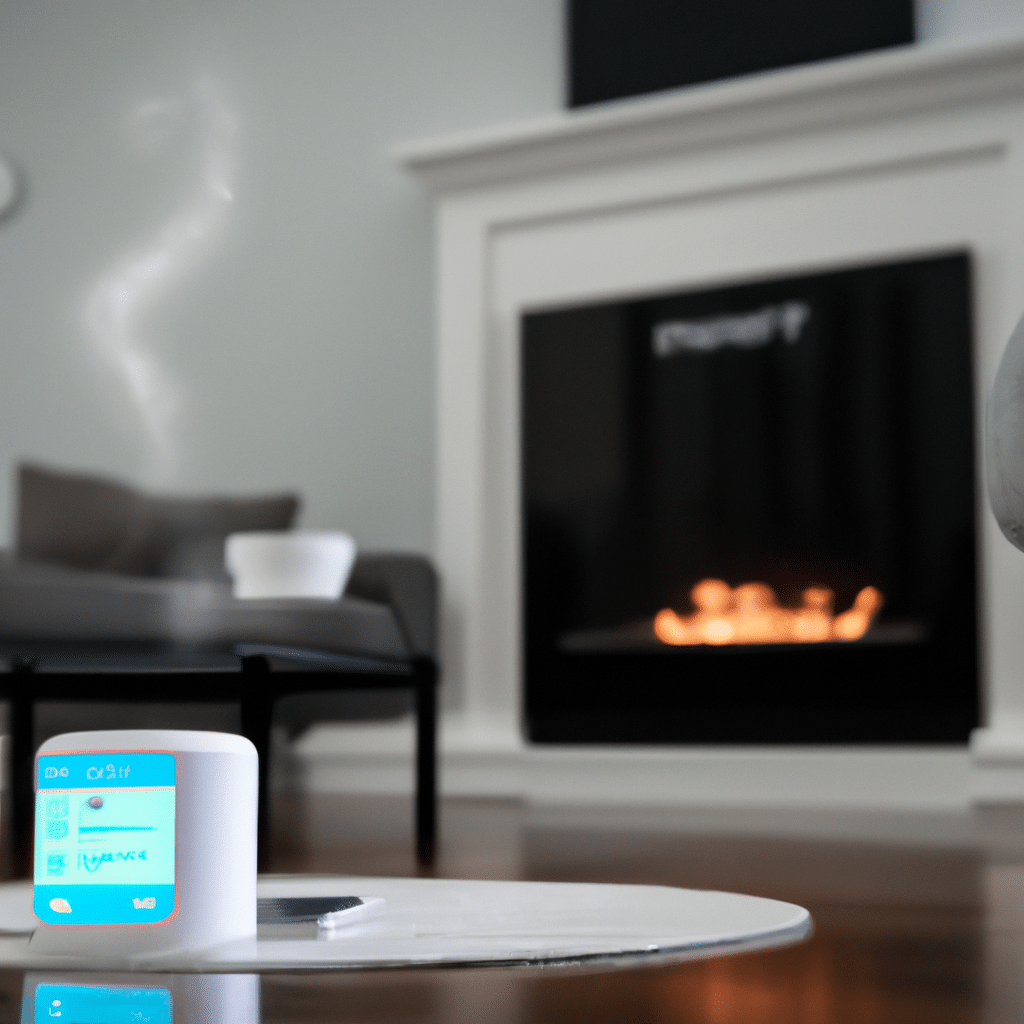As a homeowner with allergies, it can be difficult to maintain a clean and healthy living environment. Allergens such as dust, mold, and pet dander can accumulate in your home and trigger allergic reactions. Fortunately, advancements in technology have made it easier to manage indoor allergens. Smart home devices can help you monitor and control the air quality in your home, reducing the risk of allergic reactions. In this article, we will explore some of the best smart home devices for homeowners with allergies.

Air Purifiers
Air purifiers are an essential tool for allergy sufferers. They work by filtering out allergens and pollutants from the air, providing relief from symptoms such as sneezing, coughing, and itchy eyes. Smart air purifiers go a step further by allowing you to control them remotely through your smartphone. You can schedule when the purifier turns on and off, adjust the fan speed, and monitor the air quality in your home. Some models even come with air quality sensors that automatically adjust the settings based on the air quality.
Smart Thermostats
Smart thermostats are a great addition to any home, especially for those with allergies. They can help regulate the temperature and humidity levels in your home, which can reduce the growth of mold and dust mites. Smart thermostats can also be controlled remotely, allowing you to adjust the temperature and humidity levels from your smartphone. Some models even have sensors that detect when you are away from home and adjust the temperature accordingly, saving you money on energy bills.
Smart Vacuum Cleaners
Vacuuming is an important part of maintaining a clean and healthy home, especially for those with allergies. Smart vacuum cleaners take the hassle out of cleaning by allowing you to schedule when the vacuum turns on and off and monitor its progress through your smartphone. Some models even have sensors that detect when an area needs more attention and adjust the settings accordingly. Smart vacuum cleaners can also be programmed to avoid certain areas, such as rooms with pets or areas with high levels of allergens.
Smart Humidifiers
Dry air can exacerbate allergy symptoms, making it important to maintain proper humidity levels in your home. Smart humidifiers can help you do this by allowing you to adjust the humidity levels remotely through your smartphone. Some models even come with sensors that detect the humidity levels in your home and adjust the settings accordingly. Smart humidifiers can also be programmed to turn on and off at specific times, ensuring that your home stays at a comfortable humidity level throughout the day.
Smart Air Conditioners
Air conditioning can be a lifesaver during allergy season, but it can also be expensive to run. Smart air conditioners can help you save money on energy bills by allowing you to control them remotely through your smartphone. You can adjust the temperature and fan speed, and even set schedules for when the air conditioner turns on and off. Some models even come with sensors that detect when you are away from home and adjust the settings accordingly, saving you money on energy bills.
Smart Air Quality Monitors
Smart air quality monitors are a great way to keep tabs on the air quality in your home. They can detect levels of allergens such as pollen, dust, and pet dander, as well as pollutants like carbon monoxide and volatile organic compounds (VOCs). Some models even come with sensors that detect when the air quality is poor and alert you through your smartphone. Smart air quality monitors can also provide you with insights into how your daily activities affect the air quality in your home, helping you make informed decisions about how to improve it.
Smart Lighting
Believe it or not, lighting can also play a role in managing allergies. Smart lighting can help reduce the amount of dust in your home by eliminating the need for traditional light switches. Instead, you can control your lights through your smartphone or voice assistant, reducing the amount of dust that accumulates on your light switches. Some smart lighting systems even come with air purifying features, further reducing the amount of allergens in your home.
Conclusion
Smart home devices can be a game-changer for homeowners with allergies. By allowing you to monitor and control the air quality in your home remotely, you can reduce the risk of allergic reactions and improve your overall quality of life. From air purifiers to smart lighting, there are a variety of devices available to help you manage indoor allergens. When choosing smart home devices for your home, be sure to consider your specific needs and look for products that offer the features that matter most to you. With the right smart home devices, you can breathe easier and enjoy a healthier, more comfortable living environment.












